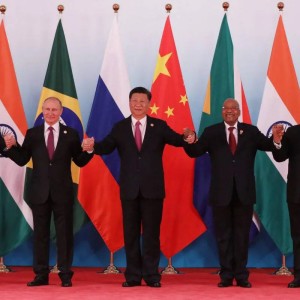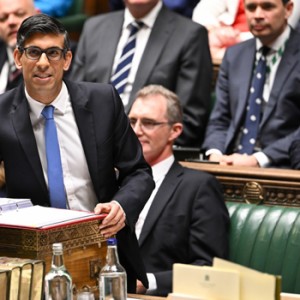For more than a year, the teenager’s weekends were dominated by marches, during which she chanted protest slogans, built barricades and dodged tear gas shells, returning to her home in Hong Kong in the evenings covered in bruises and scratches.
As Beijing intensified its crackdown on pro-democracy lawmakers and student activists over the last year, however, participating in the protests became increasingly dangerous. And in December, the 15-year-old known to journalists and fellow protesters simply as “Aurora” boarded a plane to London, the ticket paid for by an anonymous Hong Kong activist.
“I was very worried about being caught at the airport for seeking asylum in the U.K.,” the teen, who requested anonymity out of fear that her family would be punished because of her involvement in protests, told NBC News. “But on the flight, I finally felt safer and the most relaxed in a long time.”
Three days later, on June 12, she and her classmates attended a second rally in a busy commercial district, which devolved into one of the most violent demonstrations Hong Kong has seen in decades. Police fired rubber-coated bullets, tear gas and pepper spray at demonstrators. Some protesters attacked officers and hurled Molotov cocktails at them.
She said she was impressed by the activists’ solidarity.
“I had always thought Hong Kongers are cold to each other, but their unity deeply moved me, and made me burst into tears,” she said.
From then on, she became more politically engaged, reading the news every day, and she formed close bonds with her fellow demonstrators.
“I feel like protesters are more like my family, and they understand me better than my own,” said the teenager, who added that her mother disapproved of her daughter’s activism. Her parents are divorced and she is estranged from her father.
Huge ensuing demonstrations were fueled by fears that residents were losing their rights and independent judicial system amid an erosion of the region’s “one country, two systems” agreement set up when Britain handed its colony back to China in 1997.
In June 30 last year, a contentious national security law came into effect, which criminalizes actions that Beijing considers to involve subversion, secession, collusion with foreign forces or terrorism.
Arrests of pro-democracy lawmakers and student activists have become more frequent since the law was implemented.
In October, Tong Chung, 19, the former leader of a pro-independence student group, was arrested and became the first high-profile political figure to be charged under the national security law. If convicted, he faces a potential sentence of life in prison. More recently, in March, 47 pro-democracy politicians were arrested under the new law, the largest crackdown on the movement to date.
On Friday, nine leading pro-democracy advocates were sentenced to jail for organizing a march during the 2019 protests that triggered a crackdown from Beijing.
Larry Lai, a lecturer in the Department of Politics and Public Administration at the University of Hong Kong, said that young protesters tended to want to leave Hong Kong mainly for security reasons.
“The national security law and how it is enforced justifies their worries,” he said.
The U.K., in particular, has been an attractive destination, due to its close ties with Hong Kong. In July, it announced a new visa program providing a special pathway for British National Overseas, or BNO, passport holders to resettle in the country, with a fast-track to citizenship. Nearly 3 million Hong Kongers have been offered refuge and a possible path to U.K. citizenship, British Prime Minister Boris Johnson said in June. This year, Beijing said it would no longer recognize BNO passports as valid.
But female refugees — particularly those who are underage — often have a more difficult time integrating into U.K. society and obtaining access to things, such as housing and financial support, according to Nando Sigona, chair of international migration and forced displacement and a professor specializing in migration at the University of Birmingham.
“Services and support are mostly geared toward single men and families,” he said.
For now, the teen is living with a family in London and spending her time reading and studying while her asylum application is pending. One day, she hopes she can return home.
“I hope Hong Kong protesters don’t give up,” she said. “If you give up now, all our efforts go to waste.”














